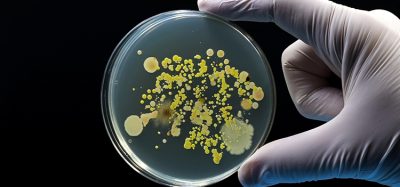Why CBD, why now? – Mile High Labs
- Like
- Digg
- Del
- Tumblr
- VKontakte
- Buffer
- Love This
- Odnoklassniki
- Meneame
- Blogger
- Amazon
- Yahoo Mail
- Gmail
- AOL
- Newsvine
- HackerNews
- Evernote
- MySpace
- Mail.ru
- Viadeo
- Line
- Comments
- Yummly
- SMS
- Viber
- Telegram
- Subscribe
- Skype
- Facebook Messenger
- Kakao
- LiveJournal
- Yammer
- Edgar
- Fintel
- Mix
- Instapaper
- Copy Link
Posted: 12 December 2019 | Dr Keith Aqua - Chief Medical Officer at Mile High Labs | No comments yet
Dr Keith Aqua, Chief Medical Officer, Mile High Labs discusses the safety of CBD and how the company is conducting research to understand CBD as a nutraceutical for general consumption as well as for multiple medical indications.


Last year I became the Chief Medical Officer of Mile High Labs, the world’s largest processor of hemp-derived CBD. Based in Broomfield, Colorado, Mile High Labs is not a medicinal cannabis company, rather a large-scale CBD ingredient and product manufacturer that supplies high-quality, high-volume CBD orders of bulk CBD and private label services to the world’s leading consumer brands. The company is now also focusing on developing the UK and European markets, opening its European headquarters in Belfast, Northern Ireland earlier this year.
So why did I accept the invitation to join, and why do I think that CBD is worth investigating, from a medical and wellness point of view?
As a medical doctor and practicing physician, I am frequently asked by my patients if CBD, either as an isolate or distillate, or even in combination with THC, is safe to ingest. People are curious about what they have heard about CBD. As I began to research the answers, I realised that no defined doses have been established. Essential safety parameters, like maximum daily dose and drug interactions, need to be determined if someone is going to ingest CBD. Basic questions need to be ascertained, like whether patients are taking CBD for wellness or trying to improve pain, sleep, or anxiety due to a specific medical condition. Essentially, a thorough history needs to be obtained.
What interests me as a clinician and scientist is how to best protect the public by helping to understand the risks and benefits of any product. Working with Mile High Labs will allow the appropriate research to expand the knowledge base relating to CBD. This way consumers can make informed choices based on their individual needs and health professionals can counsel patients to be able to self-administer a standard amount or to have a manufacturer infuse a quantity of CBD that has been proven to be safe and efficacious. It is our intent to understand CBD as a nutraceutical for general consumption as well as for multiple medical indications.
Cannabinoids, the active compounds found within the cannabis plant, refer to a heterogeneous group of molecules that demonstrate activity on the endocannabinoid system (ECS). Cannabidiol (CBD) is one of 142 phyto-cannabinoids that have been isolated from hemp1. The chemistry and pharmacology of CBD has been extensively studied and it induces markedly different physiological and psychological effects compared to the most well-known marijuana compound delta9- tetrahydrocannabinol (THC).
Within the endocannabinoid system, there are at least two receptors, CB1, existing primarily on central and peripheral neurons, and CB2, existing mainly on immune cells. By reacting with these receptors, CBD influences cells in the ECS all over the body. Many people contend, without sufficient evidence, that CBD has a wide range of therapeutic effects, including neuroprotective, anti-inflammatory, analgesic, anti-oxidative and anxiolytic. Unfortunately, most of these claims have been unproven as there has been a paucity of randomised, placebo-controlled clinical trials proving intended endpoints.
Over the past several years, researchers have reviewed the chemistry and pharmacology of CBD. There has been a plethora of data generated from animal studies, pre-clinical investigations, as well as anecdotal case reports. The recent FDA approval of Epidiolex (CBD oral solution) for the treatment of seizures associated with two rare and severe forms of paediatric epilepsy, demonstrates that there is a true medical benefit to CBD.
The extensive scrutiny and scientific research that went into proving the effectiveness of CBD at preventing seizures now needs to be applied to other indications. These disease processes may also benefit from CBD’s possible other properties. Unfortunately, and partially due to a worldwide lack of consistent regulatory control, extensive and pervasive mislabelling of CBD products exists. Independent research into online sales of CBD products has demonstrated that 43 percent of those products are under-labelled while 26 percent are over-labelled for actual CBD content2.
These are the early days in the new, but rapidly expanding CBD industry. Despite minimal marketing, advertising, and with a somewhat skeptical media, sales of different CBD products are escalating. The public appetite for CBD and the abundance of products which now contain it, are multiplying at an exponential rate. As physicians, I believe it’s now our role to ensure that consumers are protected, that evidence is gathered and presented, and that the benefits of this versatile molecule are made available to all consumers.
References
- Elsohly et al, 2014
- Bonn-Miller MO, Loflin MJE, Thomas BF, et al, Labelling accuracy of cannabidiol extracts sold online, JAMA 2017
Related topics
CBD hemp & cannabis, Nutraceuticals, Quality analysis & quality control (QA/QC), Regulation & Legislation, Research & development








